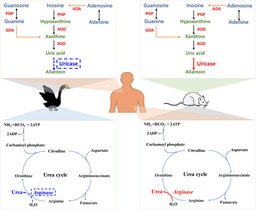Patient and Healthcare Practitioner Evaluation of Patient-Reported Outcomes in Bariatric Surgery - A Modified Delphi Study
Published in Healthcare & Nursing, Biomedical Research, and General & Internal Medicine

Patient-reported outcomes (PROs) are an important emerging metric increasingly utilised in clinical, research and registry settings. These outcomes, while vital, are underutilised and require refinement for the specific patient population of those undergoing bariatric surgery. This study aimed to investigate and compare how pre-surgical patients, post-surgical patients, and healthcare practitioners evaluate PROs of bariatric surgery to identify outcomes that are considered most important.
An Outcome Importance Survey was developed to interrogate bariatric patients’ and healthcare practitioners’ opinions on the importance of a comprehensive list of bariatric surgery outcomes. Participants completed 2 rounds of voting, incorporating Delphi techniques, to generate an importance score for each outcome for each group and overall.
A total of 58 outcomes were prioritised by at least one group or subgroup. Pre-surgical patients, post-surgical patients, and healthcare practitioners rated 29, 26, and 44 outcomes as highly important, respectively. The highest-rated outcomes for each group were ‘Energy Levels/Fatigue’, ‘Overall Quality of Life’, and ‘Overall Mental Health’ for pre-surgical patients, ‘General Physical Health’ and ‘Level of Pain’ for post-surgical patients, and ‘Co-morbidities’ for healthcare practitioners. Examples of unanimously prioritised outcomes include ‘Co-morbidities’, ‘Overall Quality of Life’, ‘Weight/Surgery-Specific Symptoms’, ‘Emotional Eating’, ‘Preparedness for Bariatric Surgery’, and ‘Self-Esteem’. Examples of discordant items prioritised by patients included ‘Level of Social Activity’, and ‘Quality of Sleep’ while discordant items prioritised by healthcare practitioners included ‘Suicidal Thoughts’, ‘Addictive Behaviours’, ‘Decision Remorse’, and ‘Experience of Stigma or Discrimination’.
This research identified those outcomes considered most important by each of our stakeholder groups. Of importance was highlighting the differences between patients and healthcare practitioners, as well as between pre- and post-surgical groups, and medical & allied health practitioners. This research emphasises the range of priorities represented across these groups and the need for any core outcome set or patient-reported outcome measure (PROM) to consider these priorities.
Follow the Topic
-
International Journal of Obesity

This is a multi-disciplinary forum for research describing basic, clinical and applied studies in biochemistry, physiology, genetics and nutrition, molecular, metabolic, psychological and epidemiological aspects of obesity and related disorders.





Please sign in or register for FREE
If you are a registered user on Research Communities by Springer Nature, please sign in